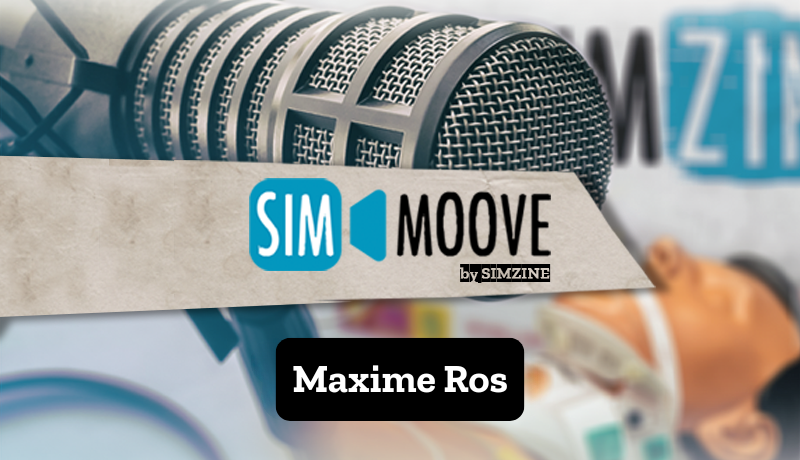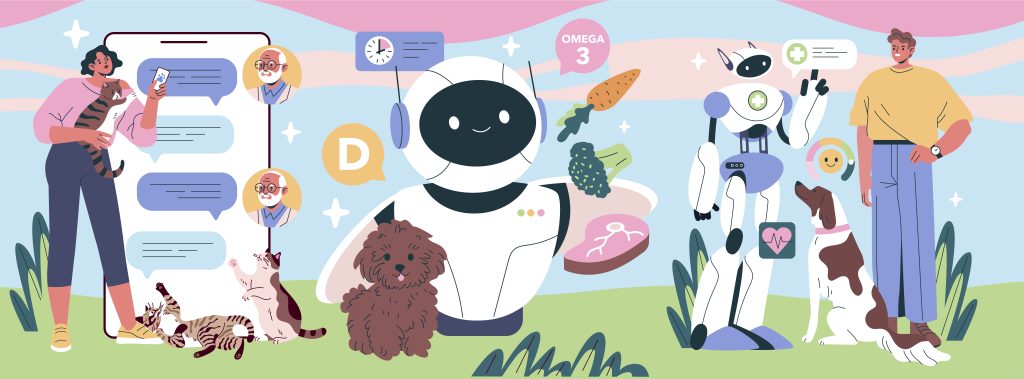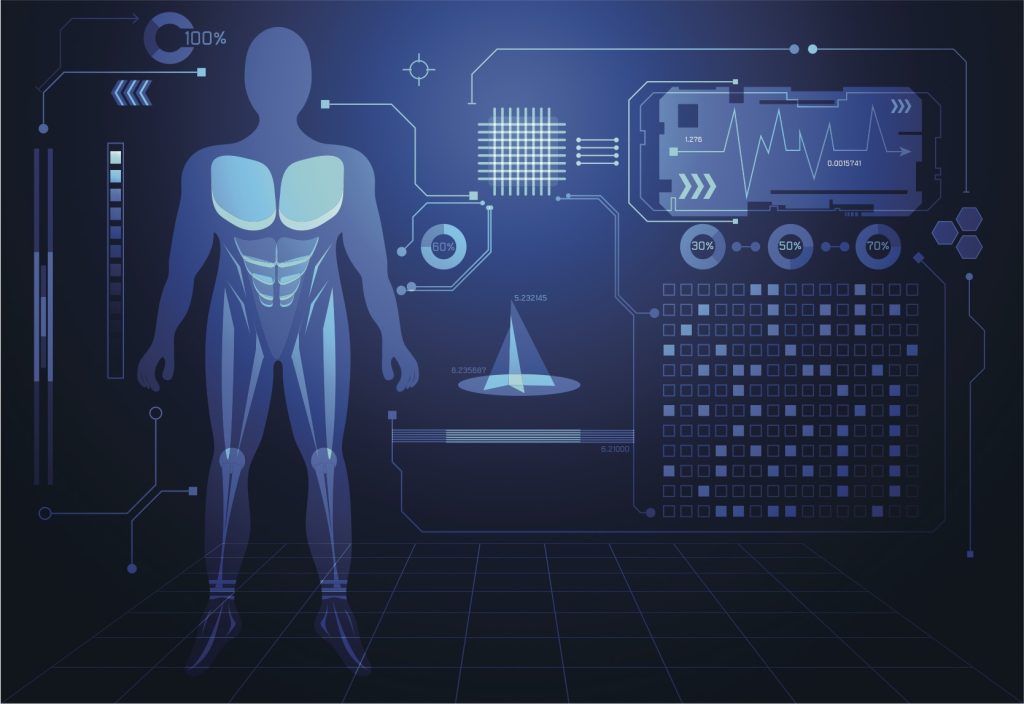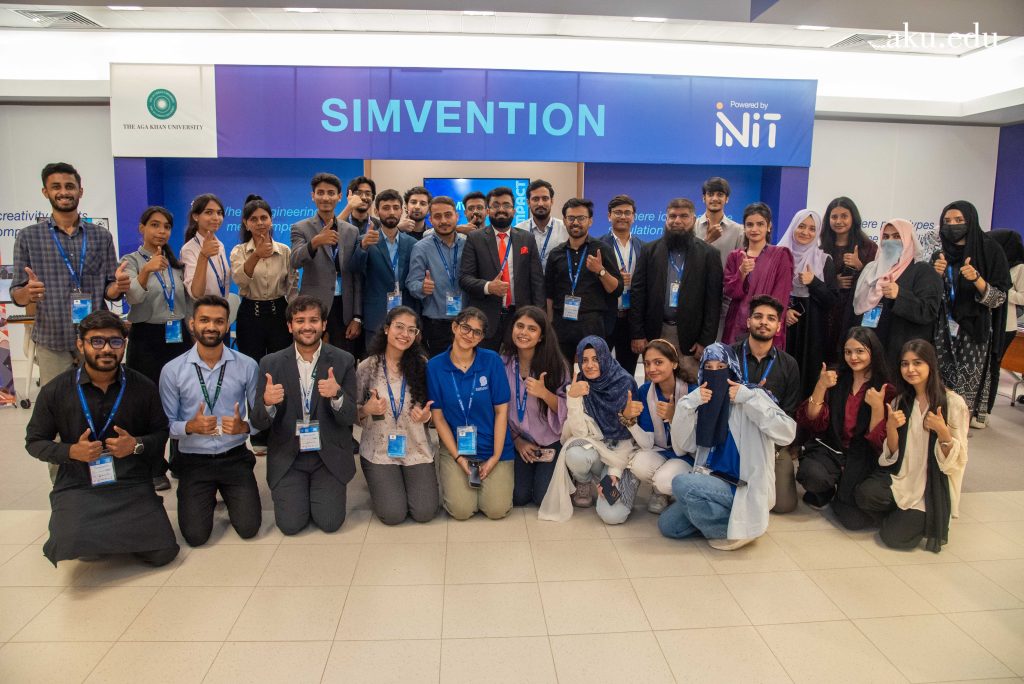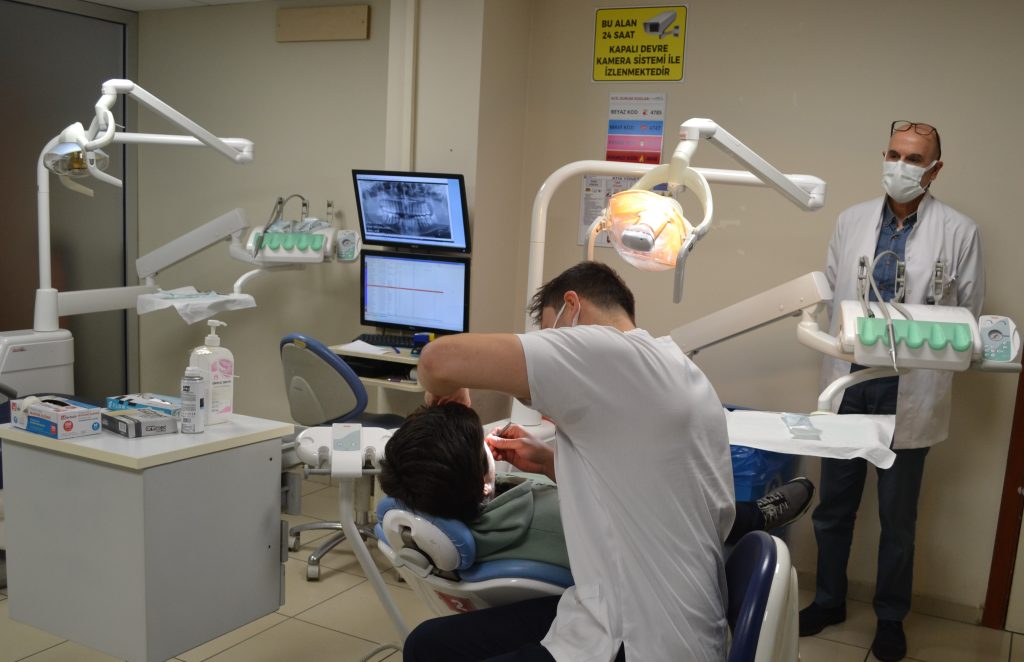Welcome to the transcript of the first episode of SIM Science Recap, a podcast designed to provide quick, insightful updates on scientific literature and relevant topics for the healthcare simulation and education community. This inaugural episode, curated by May Sissel Vadla, dives into how Artificial Intelligence is reshaping simulation-based education.
Topics include AI applications in clinical training: from sepsis team drills to surgical education, communication skills training, and radiotherapy. Drawing from peer-reviewed studies and pioneering initiatives, the episode examines the benefits and challenges of this emerging technology. By combining human expertise with AI, this podcast experiment aims to make knowledge more accessible and engaging.
Dive in and discover the transformative potential of AI in healthcare simulation!
Episode transcript
So, I got something super cool for you today… something I’ve been, like, totally geeking out about.
Oh really? I’m intrigued. Please, go ahead!
Well, uh… it’s all about AI in healthcare simulation. I know, it sounds kinda futuristic, but it’s actually happening now. Like, right now. You know, on “AI in Simulation”…
I love it! And it’s about time. Let’s dive in.
So, Anna… AI’s creeping into all sorts of simulation scenarios, and, and I just really liked it. It’s not just about surgery anymore, right?
Um… yeah, totally. I was reading about how it’s being used in nursing… like training for sepsis teams, you know… and… and it’s super interesting.
Oh, absolutely. Liaw and, and her crew in ’23, they looked at AI doctors versus, like, human-controlled ones in virtual reality, right? For sepsis training, and… and it was amazing! They found that AI could totally hold its own. Totally! You know, no real difference in performance, but… but way easier to scale up the training ’cause… you don’t need as many instructors. Really. It’s, it’s a game changer!
Wow. Um… so, like, beyond nursing… where else are we seeing AI pop up?
Oh, everywhere! Like, Yamamoto and his team in ’24, they used it to train medical students on interviewing skills… you know, with an AI-simulated patient. And, and they totally saw some really cool improvements. And then there’s radiotherapy. Azmi’s team in ’22 used it for communication training there too. Totally!
Um… so it’s pretty diverse then.
Totally! And, and you know what I mean, even pharmacy’s getting in on the action… like, Nakagawa’s ’22 study used AI to train students on identifying, um, pelvic fractures from x-rays. It’s, it’s mind-blowing! And there’s more, right? We got social work and a couple of papers on dentistry too. Ngantcha’s group in ’21 and her team in ’22, they all used AI-powered virtual patients. Totally amazing.
Um… okay, so lots of potential then. But, uh… what about, like, the bigger picture? Any downsides?
Oh, yeah, for sure. Hamilton’s ’24 review, he really nailed it, right? Huge potential benefits, but, but also major challenges, you know… accuracy, bias, those ethical questions we always gotta keep in mind. and then Violato’s team in ’23, they found, um, similar things too, like, needing more structured ways to actually develop simulations… you know what I mean… those technical details. So, like, still lots to figure out, but… it’s, it’s such an exciting time! Truly!
Okay, so… tons of cool stuff happening, but, um… can we get into some more, like, specific examples? Do you know what I mean? Like, how’s this AI actually showing up in these simulations?
Oh, totally, totally! So, like, Bowers and her team in ’24, right? They did this really cool scoping review on AI-powered virtual patients, specifically, you know…, for communication skills training. It’s, it’s amazing! Like, they found all sorts of different ways people are designing these VPs, you know… and… and using them in, like, nursing, dentistry, pharmacy… all over the place. It’s, it’s fascinating!
Oh, that’s cool. Um… so, like, the virtual patients talk to the students?
Exactly! And like, Varas’s ’23 paper, he really dives into how AI’s being used in surgical training… not just for practice, but also for, assessment and feedback. It’s, it’s brilliant! They talk about these AI-powered platforms that can analyze, like, you know…, motion tracking data, force measurements, even video recordings! And then give, like, personalized feedback based on what the trainee’s doing. Super cool!
Wow… um… so how does that, like, personalized feedback work?
Well, and, and I just really liked it, the AI can pick up on, like, you know…, specific areas where the trainee needs to improve, right? And, and then tailor the feedback to their individual strengths and weaknesses. It’s, it’s really smart. And, and it’s not just about, like, “you did this wrong,” it’s about, you know…, helping them understand why they did it wrong and how to do it better next time. Totally!
Oh, that’s helpful. Um… what about, like, predicting skill development? Can AI do that?
Absolutely! And, and you know what I mean, they can analyze all that performance data, right? And, and then start to see patterns… and, and predict how the trainee’s skills are likely to progress. Totally! It’s, it’s like having a crystal ball for surgical training. Really.
Um… so what other, like, learning theories are relevant here?
Oh, so many! Like, you know…, self-regulated learning, right? Where, like, the learners are taking charge of their own learning process… and, and then there’s situated cognition, you know… which emphasizes the importance of the learning environment. And, and these AI-powered platforms, they can really create, like, these rich, immersive environments that help learners apply what they’re learning to, like, real-world situations. It’s, it’s fantastic! Totally!
Okay, so lots of moving parts then.
Totally! And, and you know what I mean, don’t forget about things like virtual instruction, you know… where AI can act as a virtual teacher… and, and intelligent tutoring systems that can provide, like, personalized tutoring and feedback. And, and then there’s automated assessment, right? Which can really streamline the whole evaluation process. It’s, it’s a whole new world for simulation. Truly!
Okay… um… so it all sounds totally amazing, but… you know… with any new tech, there are always, like, challenges, right? What are some of the, like, roadblocks people are running into with AI in simulation?
Oh, yeah, for sure, for sure. So, like, accuracy and reliability, right? That’s, that’s huge. Totally. Like, Hamilton’s ’24 paper… and, and Varas’s ’23 one too, they both talk about how, like, you know…, these AI systems, they can sometimes, like, hallucinate. You know what I mean? Like, they might just make stuff up… or, or misinterpret the data… and, and that can obviously be, like, a really big deal in healthcare, you know…? Really.
Oh, wow. Um… so how are people addressing that?
Well, and, and lots of researchers are working on, like, you know… making these AI models more transparent, right? So, so we can, like, actually understand how they’re making decisions. Totally. And, and they’re also working on developing, like, better ways to, like, validate the algorithms… so we can be more confident in their, like, accuracy. You know? Really.
That makes sense. Um… what about bias? Is that a concern?
Absolutely. Totally. You know what I mean, if the data that the AI’s trained on is biased, right? Then, like, the AI’s gonna be biased too. Really. And, and that can lead to, like, unfair or discriminatory feedback, or even, like, you know…, treatment decisions. And, and Hamilton’s paper goes into that in, like, a lot of detail. Totally.
Oh… so, like, what can be done about that?
Well, and, and it is super important, and researchers are really focusing on creating, like, more diverse and representative, you know … datasets to train these AI models on, right? And they’re also developing, like, these bias-mitigation techniques that can help identify and correct, like, you know…, any potential biases in the algorithms. It is super important, totally.
Um… so, like, ethical concerns too, I guess? Data privacy and all that?
For sure, for sure. That’s, that’s a really big one. Totally. Like, Varas talks about, you know…, the importance of complying with data protection regulations, like, HIPPA and GDPR. It is, it is a big deal. Right. And, and they also talk about the need for, like, you know…, data anonymization techniques … and, and secure storage and transmission protocols. All, all that stuff is super, super important. Absolutely.
Okay… um… so sounds like educators have a lot to learn.
Totally. And, and like, you know…, not just about how to use these AI tools, right? But also you know…, about the ethical implications, you know…? And the limitations of the technology. You know what I mean? So, so there’s definitely a need for specific training for educators in this area. Absolutely.
Um… so it sounds like there’s a lot to consider, then, huh?
Totally, totally! But, but, but it’s, like, also really, really exciting, you know…? Like, the potential of AI in simulation is huge. And we’re just scratching the surface, you know what I mean…? So… like, key takeaways, right…? AI can really, really help us create more engaging and personalized learning experiences? Like, think virtual patients for communication skills…, AI-powered surgical training platforms…, automated assessments… all that jazz. And, and it can also, like, help us predict skill development…, tailor feedback…, even free up educators’ time…, so they can focus on you know…, other important stuff. Totally.
Um… so like, where do we go from here? What should educators be doing?
Well, and, and I, like, really encourage everyone listening to, like, you know…, explore AI in simulation. Absolutely. Like, don’t be afraid to experiment…, try out different platforms… , see what works for you and your students, right? And, and, and stay informed about the latest research and developments in this area…, ’cause things are changing fast. You know? Really. And, and, and most importantly, like, think about the ethical implications of using AI. Totally. Like, data privacy…, bias…, all that good stuff.
Well, Adrian, this has been super informative. Thanks for sharing all your insights with us today on… AI in Simulation.
My pleasure, Anna! And thank you all for listening to AI in Simulation, with your hosts Anna and Adrian. We’ll catch ya next time!
References
1. Hamilton A. Artificial Intelligence and Healthcare Simulation: The Shifting Landscape of Medical Education. Cureus. 2024 May 6;16.
2. Dai CP, Ke F. Educational applications of artificial intelligence in simulation-based learning: A systematic mapping review. Computers and Education: Artificial Intelligence. 2022 Jan 1;3:100087.
3. Liaw SY, Tan JZ, Rusli KDB, Ratan R, Zhou W, Lim S, et al. Artificial Intelligence Versus Human-Controlled Doctor in Virtual Reality Simulation for Sepsis Team Training: Randomized Controlled Study. Journal of Medical Internet Research. 2023 Jul 26;25:e47748.
4. Bowers P, Graydon K, Ryan T, Lau JH, Tomlin D. Artificial intelligence-driven virtual patients for communication skill development in healthcare students: A scoping review. Australasian Journal of Educational Technology. 2024 Jun 7;40(3):39–57.
5. Yamamoto A, Koda M, Ogawa H, Miyoshi T, Maeda Y, Otsuka F, et al. Enhancing Medical Interview Skills Through AI-Simulated Patient Interactions: Nonrandomized Controlled Trial. JMIR Medical Education. 2024 Sep 23;10:e58753.
6. Varas J, Coronel BV, Villagrán I, Escalona G, Hernandez R, Schuit G, et al. Innovations in surgical training: exploring the role of artificial intelligence and large language models (LLM). Revista do Colégio Brasileiro de Cirurgiões. 2023 Aug 14;50:e20233605.
7. Violato E, Corbett C, Rose B, Rauschning B, Witschen B. The effectiveness and efficiency of using ChatGPT for writing health care simulations. ijohs [Internet]. 00:00:00.0 [cited 2025 Jan 4]; Available from: https://www.ijohs.com/article/doi/10.54531/wjgb5594
READ ALSO































